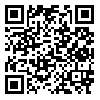Volume 2, Issue 3 (Oct-Dec 2013)
JCHR 2013, 2(3): 196-207 |
Back to browse issues page
Download citation:
BibTeX | RIS | EndNote | Medlars | ProCite | Reference Manager | RefWorks
Send citation to:



BibTeX | RIS | EndNote | Medlars | ProCite | Reference Manager | RefWorks
Send citation to:
Kiani F, Khodabakhsh M R. The Relationship between Safety Climate with Fatalism and Perceived Helplessness among Workers: Implication for Health Promotion. JCHR 2013; 2 (3) :196-207
URL: http://jhr.ssu.ac.ir/article-1-119-en.html
URL: http://jhr.ssu.ac.ir/article-1-119-en.html
Abstract: (5776 Views)
Introduction: Safety climate received substantial attention due to its potential for explaining variation in safety-related outcomes. The present study examined degree of safety climate related to fatalism and perceived helplessness among workers’ Isfahan Steel Company.
Materials and Methods: The current study was a correlation study. Sample consisting of 189 employees in Isfahan Steel Company in 2012 was selected according to the stratified random sampling method. Data gathering tools were questionnaires of demography characteristics, safety climate of Hayes, Perander, Smecko, et al. (1998), fatalism of Williamson et al. (1997) and perceived helplessness of Cohen, Karmark & Mermelstein (1983). The data were analyzed by SPSS software version 15 and statistical tests of multivariate regression and correlation coefficient.
Results: The results showed that there was internal significant correlation between safety climate, fatalism and perceived helplessness (p<0.05). Also, multivariate regression analysis showed that about 22% and 19% of the variance of fatalism and perceived helplessness variables was significantly predicted by safety climate (p<0.05).
Conclusion: The perception of fatalism and helplessness in work environments can be obstacles to prevent occupational accidents. Promoting safety climate can be associated with fatalism culture change and also perceived helplessness reduction among workers.
Review: Research |
Received: 2013/12/7 | Accepted: 2013/12/7 | Published: 2013/12/7
Received: 2013/12/7 | Accepted: 2013/12/7 | Published: 2013/12/7
| Rights and permissions | |
 |
This work is licensed under a Creative Commons Attribution 4.0 International License. |





